Genres of Historical Fiction: Beyond Corsets, Swords and Sandals
There seems to be a lot of history on television now. I don’t mean on the History Channel (although I suggest giving it a go if you are super into World War II), I mean mainstream network and cable television. While the 1980s shone as an era for British and Roman history on television, contemporary society has embraced the adaptation of history for modern audiences. No longer solely the property of highbrow BBC specials and epic adventures, historical fiction has branched into a number of subgenres, each with different core demographics, aesthetics and tone.

Before launching into the list, however, I feel I must define exactly what historical fiction is. While the traditional definition goes something like ‘a fictional recreation or adaptation of authentic history for film, television, literature or other media,’ in reality, it is much more complicated. There are many people who would judge the quality of historical fiction television based on how accurate and authentic it is in its representation of the period in which it is set, based on comparisons to ‘actual’ history in books. If you will allow me to be pretentious for a moment, technically there is no such thing as true and authentic history. Not only is history written by the victors, every source we use to determine what people ate, wore and did in decades and centuries past is hopelessly biased. No, I don’t mean that all historical sources are made with the intent of maligning or leaving people out if history (though Shakespeare and Thomas More have a lot to answer for), I mean that none are truly complete. Every book, play, pottery shard and inscription is only a part of a puzzle that can never be finished. This is why the realm of historical fiction is so vast, it includes both award winning miniseries such as Band of Brothers and fantasy epics like Hercules and Xena.
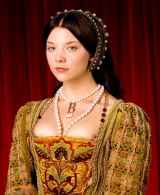
I am a snob in many ways (I have been known to sip wine and talk about Foucault), but this is not one of them. Historical fiction can be amazing regardless of whether the show gets every single historical point correct. In addition, it is often by inserting contemporary themes that programs can truly connect with a modern audience. It is common knowledge that more women than men are interested in the ‘period piece,’ adaptations of authors such as Austen or Bronte that make women swoon and Colin Firth’s bank account swell. Do you really think that the audience would be so interested in the story if it focused on the period accurate subjugation of women? What about the overt racism? How about showing that women didn’t shave under their arms or legs? (Not to mention the terrible black teeth they would have had from a lifetime of not brushing.) Most historical fiction shows a constructed version of the past that is pleasing to the contemporary eye, and thus the notion that accuracy and authenticity are an indicator of quality historical television is thoroughly warped.
Costume Drama
(The Tudors, The Borgias, Rome, anything with corsets)
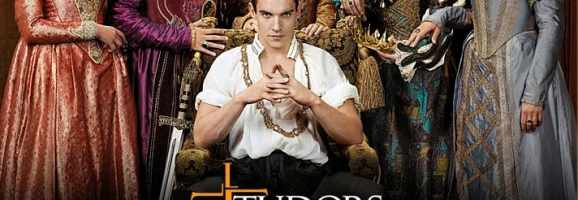
My first foray into historical fiction television was with the vibrant, lush and hopelessly inaccurate The Tudors. Jonathon Rhys Meyers played Henry VIII as if he were a menacing child, an accurate and chilling portrayal let down only by the fact that he has the eyes of a Walking Dead zombie. By far the most visible of the historical fiction subgenres, the costume drama is the realm of heaving busoms, corsets and velvet. Lots of velvet. Costume dramas are a cross between sedate historical fiction (that draws in unwitting history students), and a Gossip Girl/Revenge style focus on overtly dramatised and sexualised relationships.
With the rise in interest in medieval and historical literature, the number of costume dramas on television has increased exponentially. While The Tudors is the archetypal program, it’s spiritual successor in The Borgias could give it a run for its money in sex, violence and crying historians. If you enjoy intrigue, backstabbing and beautiful costuming and scenery, this is the type for you. If you aren’t a fan of slow moving plots and slightly hammy acting, perhaps it is best to stay away.
Social Drama
(Mad Men, Pan Am, A Place to Call Home, anything with second-wave feminism and cigarettes)

A relatively new form of historical fiction, social drama situates itself predominantly in post-war eras of dramatic social change, in the 20s, 30s, 60s and 70s. Mad Men exemplifies almost every key point of this subgenre, with a narrative focus on intergenerational struggle and the empowerment of women and minorities. In addition, social dramas tend to be meticulously researched, even more so than the costume drama, predominantly because there are people alive who can recall the 60s and call shenanigans on any hastily patched up historical holes.
This genre tends to be packaged in one of two ways. Either you have the sepia toned, sanitized world of Pan Am, where everyone is beautiful and social problems are overcome within one episode; or you have Mad Men, each episode slowly degrading everything you thought you knew about the 1960s until you are curled up in the fetal position crying about Samsonite. It is a choice between nostalgia and harsh reality, each of which has its place and time. Plot lines are glacially slow in this genre, so if you are looking for sharp twists and turns, avert your gaze. However, if you like wiggle skirts, well-dressed men and historically accurate racism and sexism that makes you feel uncomfortable- you are in the right place!
Wartime Drama
(Band of Brothers, The Pacific, anything where your favourite character is killed by a grenade)
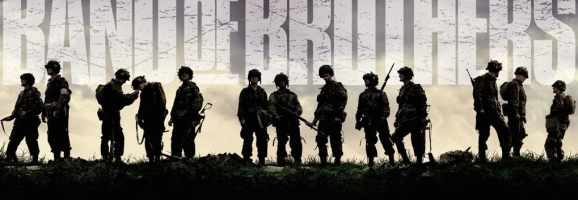
Ah, the wartime drama. How I have studiously avoided you since that one time my history teacher made me watch Gallipoli and I cried. Not for the faint of heart, the wartime drama has shifted over the years from a mouthpiece for pro-war propaganda, to a gore-ridden anti-war statement, to somewhere in between the two. These days, wartime dramas play on the glory of mate ship and sacrifice rather than any glory in actual warfare. Don’t expect wartime drama to be particularly kind to the men in charge of things, since the majority of the screen time is given to the men on the ground or in the muddy trench water.
Band of Brothers is one of those rare series which is both critically and popularly acclaimed, and even I (picky though I am) have very little to say in the negative. You know going in that some of the characters are going to die, but the program somehow makes you hope against all hope that it will turn out okay. (Hint: it doesn’t. Ever.) If you like historically accurate portrayals of both the actual battles as well as the heroes behind them, the wartime drama should be your style. However, be warned, if any of these genres are going to break your heart into a million pieces, this is it.
Heritage Drama
(Sense and Sensibility, Pride and Prejudice, Jane Eyre, anything with wet Colin Firth)

Heritage television is divisive, to say the least. For every damp Colin Firth loving Austen-a-holic out in the world, there are two people ready to decry this entire genre for being too sappy or too slow moving. Personally, I think heritage dramas are like popcorn. They aren’t very substantial, but sometimes you just have a craving. One scene from the most recent (2008) remake of Sense and Sensibility has everything I love about the heritage drama, with the buff hero chopping wood in the rain, his wet shirt open to reveal a tantalising glimpse of a completely waxed chest. Essentially, the creators of the program put everything that women stereotypically want into a hat, and then filmed the hat.
Often called ‘pornography for women’, the heritage drama is far less sexually charged than it’s costumed equivalent, focusing more on loaded glances and stolen touches than bodice-ripping sexcapades. So, if you want something with more skin (No judgement here. Haven’t you seen Henry Cavill?), you are better off with The Tudors. If you have had a really long day at work and your cat doesn’t want to sit on your lap, though- pop in Northanger Abbey and drift away.
Pseudo History/Fantasy History
(Xena, Merlin, Da Vinci’s Demons, anything with history and magic)
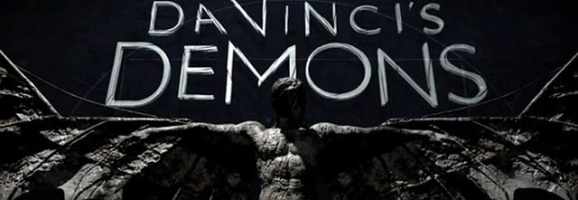
I wasn’t sure at the beginning of this article whether or not this particular subgenre should be included, as it runs so close to complete fantasy. The reason why Xena is here and not Game of Thrones, is that while neither have any real authenticity about them, Xena is still set in what is deemed to be our past, where GOT is a parallel/alternate/fantastic universe. Yes, there are parallels between the Lannister/Stark divide and the Lancaster/York War of the Roses, and nobody is saying GOT isn’t the best thing since fire, but it doesn’t belong here. Even more divisive than the heritage drama, pseudo histories must be taken with a grain of salt. I must admit to spending more time laughing at rather than actually being entranced by these series, but they are still a fun ride!
The pseudo history takes what we know about our past (Da Vinci was a great artist and inventor) and then dropkicks it into a pool of crazy (Da Vinci solved crimes and discovered South America). If you try and point out historical inaccuracies in this genre, you will be wasting your breath. Pseudo history is meant to be a little bit ridiculous, so if you have time for crazy, this is your genre. If you are forced to watch it by a friend, turn it into a drinking game! Every time you see a historical inaccuracy, DRINK! You’ll be out before the opening credits have finished.
Mystery/Procedural
(Ripper Street, Life on Mars, Endeavour, anything with luscious mustaches)
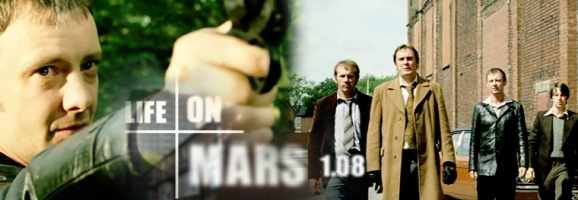
This is the subgenre of historical fiction tailor made for those of you who don’t typically like historical fiction. These programs take an established genre, with its own set of plot structures, and merely transplants this to the recent past. All of the familiar characters are there (the newly minted and eager police officer, his jaded and cynical boss, the femme fatale, the mobster, the weasel), and they are often in the same situations (murder, arson, jaywalking), but instead of DNA and fingerprint analysis, they have elbow grease and good old fashioned know how. Think of these as gateway programs, easing you into the hardcore costume and wartime dramas. One day you will be watching an episode of Copper, the next you will be hip deep in Doritos dust and a Borgias marathon. Slippery slope.
The most well crafted of this genre is in the 2013 series Endeavour, based around a young Inspector Morse. You don’t need to have been a fan of the long running Inspector Morse series to enjoy Endeavour, rather it stands on its own as a beautifully structured police procedural which just happens to be set in the 1960s. If you like Law and Order, you will love the procedural historical drama. If you are looking for something with a little more serialization, try your hand at one of the other subgenres.
So, there they are. Six whole subgenres for you to pick through to find whatever suits you best. After reading this, I truly hope that I won’t ever have to hear “I’m not a fan of historical fiction” ever again. It’s like saying “I’m not a fan of television”- well, you probably are. You just haven’t found what you like. My two cents here? If you are going to give any of these programs a shot, you have to try at least two episodes before you give up. Historical fiction on television, with few exceptions, moves quite slowly. Imagine giving up on The Wire or Breaking Bad after one episode. Ludicrous. I love historical fiction, and I hope that this like might make converts of at least a few of you!
What do you think? Leave a comment.











This is a great post Kathryn.
Historical fiction on TV has been trending a lot recently. But with it has come a lot of garbage too, like Pan Am!
So harsh on Pan Am! I wasn’t interested in a lot of the show, but I did enjoy the spy stuff, as unlikely as it was.
I am currently watching the DVD series of The Tudors for the second time, about 18 months after the first viewing. And thoroughly enjoying each episode, too: probably more than the first time.
It would be very interesting if a very thin, coloured line, could be placed at the bottom of the screen shot by shot: green for documented historically correct action, amber for correct but dramatised scenes and red for frankly invented bits. If nothing else it would give the viewer an idea of how to appraise the series as a whole.
Tudors would be nothing but a red line! It would be interesting to see how many of the crucial plot points were fictional!
Bit harsh! Sure it takes liberties, but it’s not all made up.
I am feeling that we are not seeing much wartime drama. We have a few exceptions like Band of Brothers, The Pacific and Generation Kill but not much more than that.
I request more war dramas!
No, I think it is really a film genre- maybe producers are scared that people do not want to see war for a full series? Not a valid fear, I suppose.
Love your writing style!
When I first saw Ripper Street it felt a lot like I was watching the Sherlock Homes movie. But I have to admit it’s nothing like that. The series instead, depicts life in 19th Century Whitechapple, and does it very well.
Yes, Ripper started off looking a little dodgy, but I think I was associating too much with the RDJ sherlocks. Really engaging series!
This is really interesting. I’m not one for historical fictions but I wonder is a modern audience wouldn’t be interested in a super realistic historical drama? What with more raw shows like Girls on HBO becoming popular, I wonder if an overtly historical drama would not be something a modern audience could come around to in the coming years.
This is an interesting article and for me “historical drama” is most interesting not to learn about history per se, but to understand how people of the present (i.e. the historian) view history, and what their biases suggest.
This is such a fantastic article; in-depth, interesting, and engaging. Your critical commentary is extremely enlightening too. Thank you!
I also am a fan of historical drama and I know it has been almost a year since this article was written but I would like to suggest to anyone reading that Reign is a good historical fiction series if you are into costume dramas.
Just added some things to my watch list from this :3
“Pseudo History/Fantasy History” is basically another version of fan fiction.